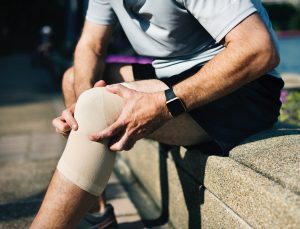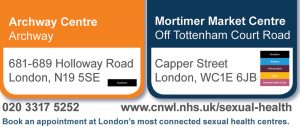Dear Dr Laura,
I’m 55 and I’ve been HIV since 1994. I’m doing fine on the medication but I read recently that ageing people with HIV have an increased risk of arthritis. Is this true and what other health issues may I face as I get older? Thanks a lot.
Rodney
Dear Rodney,
Thank you for your question. Arthritis is the latest condition flagged as more common in people with HIV – a small US study showed people with HIV had more knee osteoarthritis, and it progressed more quickly, than in people without HIV. Osteoarthritis is the ‘wear and tear’ arthritis common as people get older.
Arthritis is just one of many age-related conditions reported as more common in people with HIV but studies should be considered with caution. For example, the arthritis study was very small, just 10 people with HIV and 20 without. With small studies there’s a risk that differences are over-estimated so these findings must be confirmed in bigger groups.
The other important factor, before we conclude HIV contributes to ageing, is people with HIV may be different to HIV-negative people in many ways, not just HIV status. For example, it’s well-established that people with HIV are more likely to smoke; smoking, of course, is an important risk for many illnesses. For the arthritis study they tried to ensure the HIV-positive and HIV-negative groups were similar in age, gender, race and weight, but did not account for other differences that could affect arthritis risk, such as exercise, previous injuries or whether family members has arthritis.

In research other factors that could explain differences between two groups are called ‘confounders’ and if not fully considered when data is analysed, they can make it look like HIV is associated with a particular condition when, in reality, it’s not. The other important issue is that people with HIV undergo far more general health checks, including blood pressure and cholesterol measurement, than they would otherwise. This means other conditions will be detected earlier which is a good thing!
Despite all that there are some pretty good big studies showing people with HIV are at higher risk of various ‘diseases of ageing’ including heart, lung and kidney disease. There’s a lot of debate about why and the most important explanation is lifestyle factors (see below!).
Another factor is HIV treatment; some drugs can increase your risk of age-related conditions. For example, abacavir may increase heart disease. It’s important for you and your HIV clinician to talk about the risks of your drug combination and make an informed choice about which most suits you. This should include estimating your risk of future problems; we use online calculators to predict risk of heart, bone and kidney disease for example.
The combination that suited you when you were younger may not be the best one as you get older so ask your clinic about recent evidence and whether switching to an alternative would be better. Despite this, being on pretty much any treatment is better than being on none since all the conditions I have mentioned will be even more common if your HIV is not controlled on treatment!
Finally HIV itself may play a small role; people with HIV have more inflammation in their bodies; this improves with effective treatment but remains higher than in people without HIV. Of course, there may be other factors contributing too. Despite this, no attempts so far to further reduce inflammation by adding in other treatments have led to any real benefit – research continues.
What should you do?
Take HIV treatment as advised to keep your viral load undetectable – this will reduce your risk of most age-related conditions.
Speak to your clinic about which combination is best for you, bearing in mind this may change as you get older.
If you’re diagnosed with another condition follow the advice given; remember to check if any new medication interact with your HIV meds.
And now the boring bit! Don’t smoke, drink within recommended limits, exercise regularly, eat a healthy diet and maintain a healthy weight – these are by far the most important factors and the NHS Choices website is brilliant for lifestyle advice.
The Boyz Doc is Dr Laura Waters, an HIV and sexual health consultant at the Mortimer Market Centre in central London. Dr Laura answers your questions every week in Boyz. If you have a question for Dr Laura please email her at [email protected]















